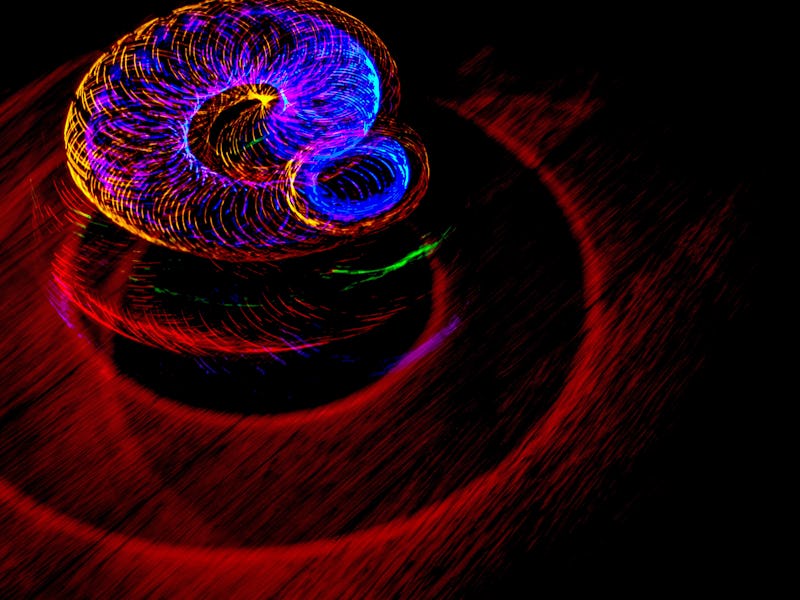New Theory About Dark Energy Breaks Law of Conservation of Energy

Dark energy (not to be confused with dark matter) is the stuff that let’s scientists know the universe is expanding at an accelerated rate. Although its estimated to contribute to 68.3 percent of the total energy in the observable universe, dark energy never actually been directly measured or observed. A lot of the hypotheses that prop up its role in the expansion of the universe are still subject to scrutiny. And so it goes that a trio of scientists thinks dark energy actually upends the law of conservation of energy — total energy in the universe gradually disappears over time.
The observation that the universe is expanding at an accelerated rate (based on the measurement of brightness emitted by starlight as it moves outward toward the edges of an ever-growing universe) helps support the idea of a cosmological constant — that dark energy is a pressure endemic to the vacuum of space. But calculations under quantum mechanics suggests that vacuum should fluctuate; and Einstein’s general relativity suggests those fluctuations would produce enough energy to, well, annihilate the universe itself. So the cosmological constant needs to exist, but it needs be small — and that’s a big mystery plaguing physicists today.
Researchers at Aix-Marseille University in France and the National Autonomous University of Mexico in Mexico City think they have an explanation that reconciles this problem. Based off an alternative model of general relativity called unimodular gravity, energy doesn’t need to be conserved. This violation basically sets the value of cosmological constant — the energy that disappears from the universe changes the constant itself.
“In the model, dark energy is something that keeps track of how much energy and momentum has been lost over the history of the universe,” Alejandro Perez of Aix-Marseille University, one of the members of the research, told Science.
There are two ways the researchers might be able to prove this. One is through a theory known as continuous spontaneous localization, which says that a subatomic particle can be in two places at once (which is sort of impossible) but larger objects like a house cannot (which is even more impossible). CSL also violates the conservation of energy — so it could be a framework under which the new dark energy theory also holds true.
Unfortunately, we’re still completely operating under abstract theory. There is no way at all to test this right now — and it’s totally unclear how we might ever be able to test this new idea. But if we find a way one day, and it turns out to be true, be ready to say a speedy farewell to all the laws of physics you know and hold dear. The collapse of the law of conservation of energy would have extreme ramifications for pretty much everything we know about how the universe works.